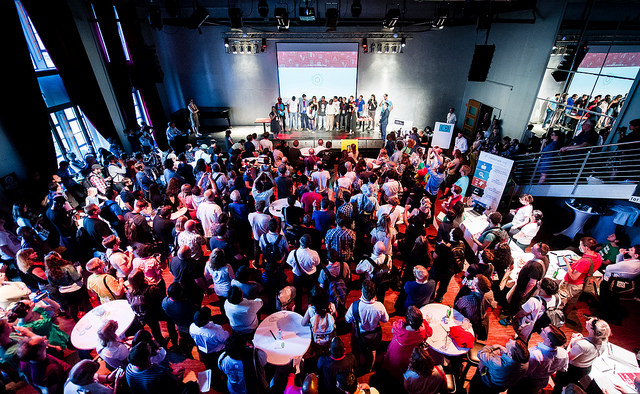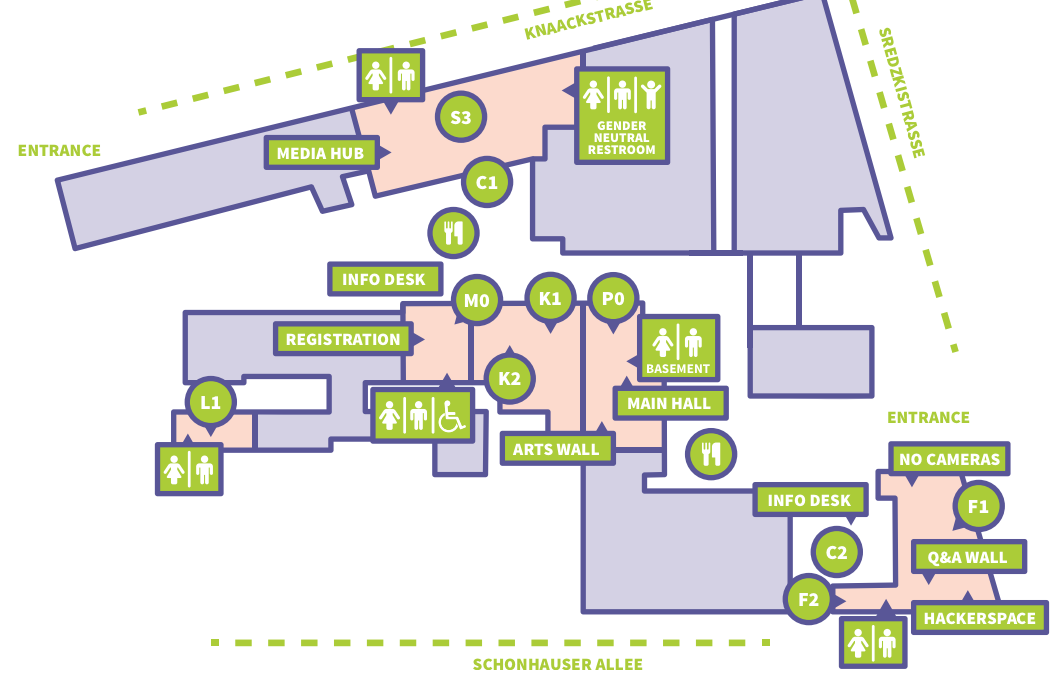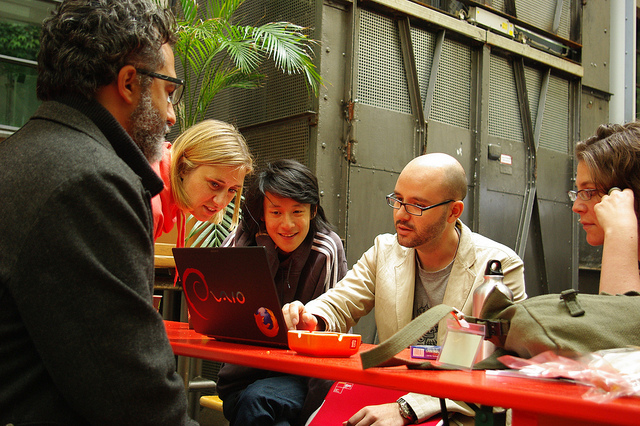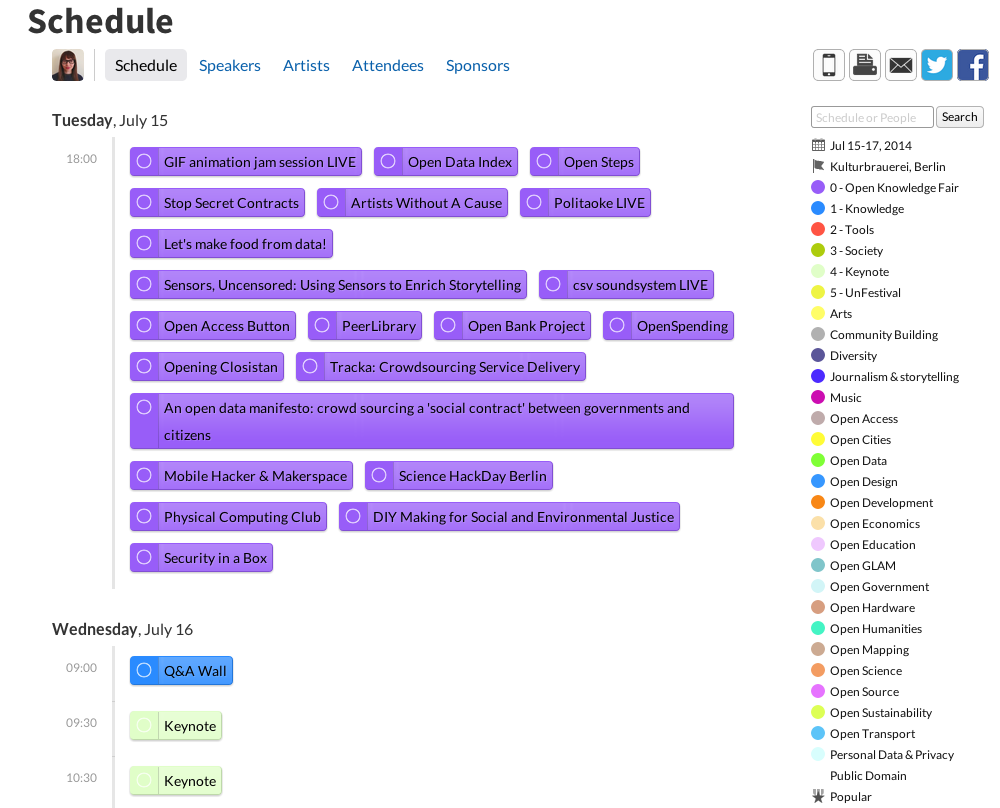To create societies where everyone has both access to key information and the ability to use it to understand and shape their lives, we must build knowledge into the heart of all of our activities. This is a big task which requires not just a global shift in mindset, but also that we build the tools and communities to make such a society possible.
This is the driving force of this year’s Open Knowledge Festival, whose vision of “Open Minds to Open Action” will be based around three narrative streams; Knowledge, Tools and Society.
In this 3-post series, we turn the spotlight to each of those three narrative streams. Today’s stream of choice is Knowledge.
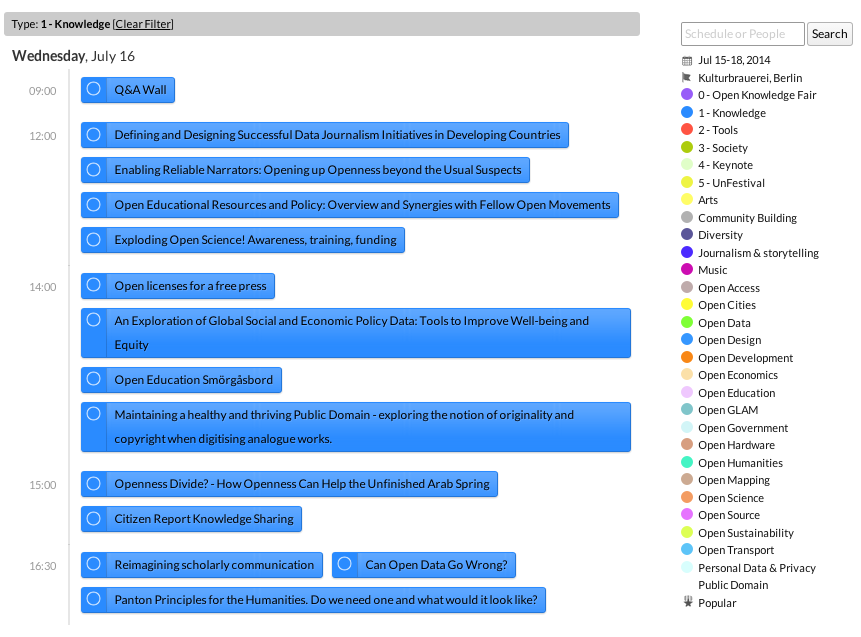
How can we unlock, expand and share knowledge? How can we have immediate, free and unrestricted access to information? How can we collect and share data affecting our lives – from clinical trials to government spending?
Knowledge informs change, and we’ll explore ways to increase our collective knowledge through open access, open research data, open educational resources, open science, data journalism and campaigning, data visualisation and literacy. How? Let's have a look at a handpicked (and far from comprehensive, considering the size of the the stream’s programme!) selection of Knowledge sessions.
Expanding the adoption of Open Science, in its many trends, requires multiple simultaneous forces: awareness, training and funding. This workshop intends to probe how we’re collectively balancing our efforts among these forces, where have we been great, where could we be doing better, and where must we do better in the future.
The free and open exchange of knowledge empowers people, promotes accountability and sparks creativity. However, publishing and using data for social good can sometimes have the opposite result: cautionary tales are shared in corridors about open data projects that empowered the powerful, endangered the powerless, and generally made things worse while honestly trying to help. This session will provide a safe and private conversation space for all those who wish to share their experiences of open data snafus, ranging from hilarious to perilous, transparently learning from our failures, and empowering new projects with roadmaps on how to open and share responsibly.
Working with data can empower or disempower. Algorithms, technical language, unfamiliar processes – these all leave many communities incapable of working with data, or understanding data-driven discussions. Most folks don’t “speak data”. We’ve developed and tested a set of hands-on activities that introduce finding stories in data to communities. Help us tweak them, give us your insights and experience, and lets all learn from each other! You’ll walk away with skills and ideas to help the communities you work with!
After creation of a public working group as part of the Open Government Partnership process, organisations such as Access Info Europe and the Sunlight Foundation decided to propose guidelines on how to regulate lobbying. These guidelines cover both regulation of lobbying and recommendations as to which information governments should publish in order to bring full transparency to lobbying activities. This session will present these guidelines and discuss with the participants a series of questions which have arisen during the drafting process.
For those diagnosed with disabilities later in life and for those who acquire them, it can be difficult to find relevant information. Wikipedia is a great help. So is Open Access to journal articles and encouraging people with a high level of understanding to share evidence-based information that goes beyond the purely medical. Open Science is well established, but doesn't address how people understand themselves. Humanities and social sciences can do that. Open Education can do that. The Open community also needs to better reflect the world’s diversity – it currently skews very white, very middle class, very non-disabled and fairly male. Accepting disability as an identity means challenging your own and others’ perceptions of you as an unreliable narrator and participating in your own narrative, using open knowledge from many disciplines as both a tool to understand and a weapon in the face of ignorance.
Having a healthy and thriving Public Domain is essential to the social and economic well-being of society, as it's the material from which society derives knowledge and fashions new cultural works. However, during the act of digitisation, organisations or the person performing the act of digitising sometimes claim copyright on the digitised work, effectively taking it out of the public domain. The notion of ‘originality’ is hard to define and leads to a lot of discussions. Together with representatives from cultural heritage institutions, legal experts and open data advocates, we want to explore this further, provide a series of guidelines for cultural heritage institutions when they start a digitisation program and come to a common approach how to deal with this issue.
- Open Education Smörgåsbord – Marieke Guy (Open Knowledge), Miska Knapek (Open Knowledge Finland), Irina Radchenko (Open Knowledge Russia), Kristina Anderson (Creative Commons), Alek Tarkowski (Centrum Cyfrowe), Tom Salmon (Sero Consulting), Darya Tarasowa (SlideWiki)
Open Education is about breaking down barriers to learning. This may be through changing teaching practice, shifting policy, releasing data or sharing resources. In the Open Education Smörgåsbord we want to get people interacting, collaborating, sharing, making and ultimately learning about what the future of education could be. We'll fuel cross-sector and cross-domain exchange working through an interactive ‘maker party’. The five open education makers/tables will rock the floor: The Open Teacher Kit, OER Policy made crystal clear, Mobile use of open data for education, Make an Open Education Handbook Q&A and open courseware collaboration with Slidewiki. Join any of the maker tables and make and learn!
Three years ago, the Arabs marched in the streets by billions, expressing their need for “Bread, Freedom, and Equality”. Now headlines refers to this as “the unfinished spring”. Some critics refer to illiteracy as a core problem. After the role internet played, people’s understanding of its impact increased, however their ability to use it is still limited. The workshop aims to investigate the politics of Open Knowledge, to Identify its obstacles and the benefits to transitional societies, and to producing strategy and tools to empower citizens in those countries.
If this whet's your appetite for the Knowledge-centred sessions at OK Festival, check out everything that falls into the Knowledge stream via the interactive programme here!







